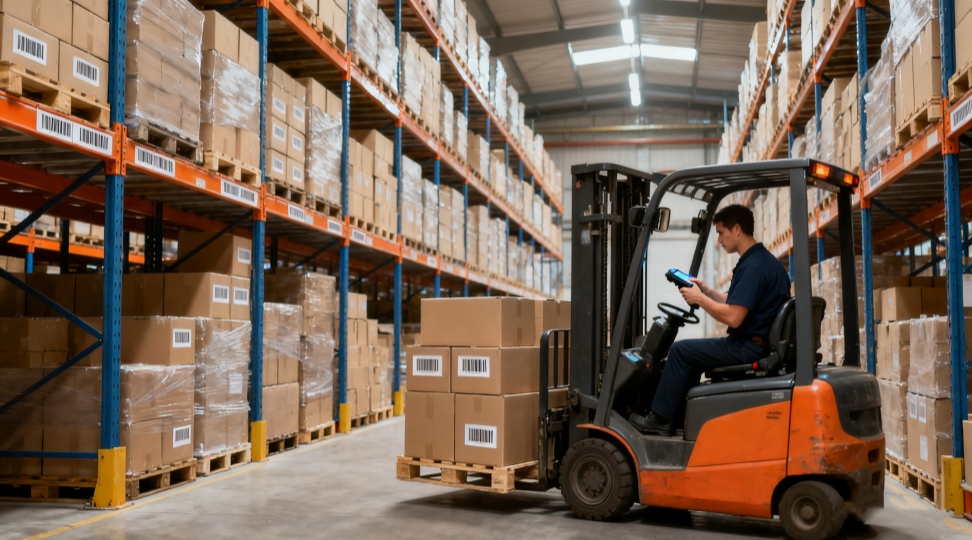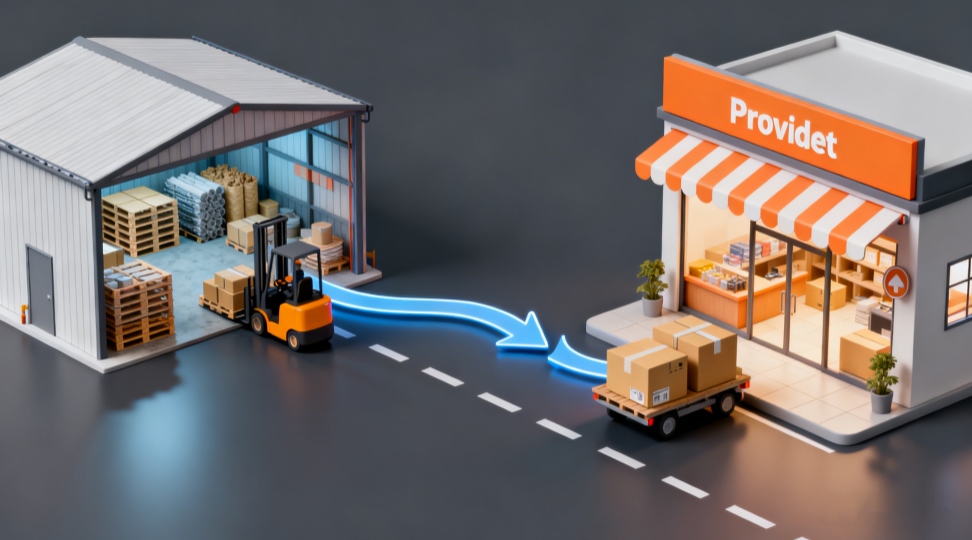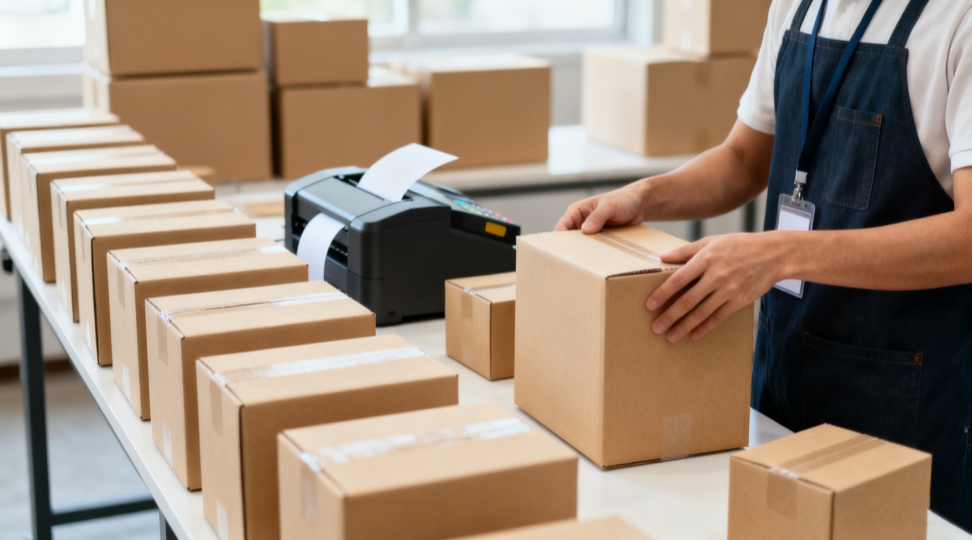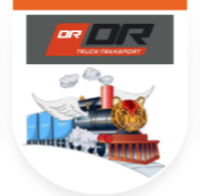La différence entre les vendeurs et les fournisseurs
Dans le monde de la logistique internationale et des chaînes d'approvisionnement, les termes fournisseur et fournisseur sont souvent utilisés de manière interchangeable, mais ils jouent des rôles très différents. Comprendre quel vendeur est et quel fournisseur Cela peut aider les entreprises, notamment celles du commerce électronique, à gérer plus efficacement leurs stocks et leurs expéditions. Par exemple, les fournisseurs fournissent généralement les matières premières nécessaires à la production, tandis que les vendeurs commercialisent les produits finis auprès des consommateurs ou des détaillants.

Qu'est-ce qu'un fournisseur ?
A fournisseur Un vendeur est une personne ou une entreprise qui propose des biens ou des services à la vente. Les vendeurs se situent généralement en bout de chaîne d'approvisionnement. fini, prêt à l'emploi Les fournisseurs vendent des produits directement aux clients ou à d'autres entreprises. En d'autres termes, ce sont eux qui proposent les produits que les acheteurs trouvent en magasin ou en ligne. Par exemple, un magasin d'électronique ou une société de logiciels sont des fournisseurs : ils achètent des produits (parfois auprès de distributeurs ou de grossistes) et les revendent ensuite en plus petites quantités à des particuliers ou à d'autres entreprises.
Types de fournisseurs dans la chaîne d'approvisionnement
Les fournisseurs peuvent prendre de nombreuses formes selon ce qu'ils vendent et leur mode de fonctionnement. types de fournisseurs inclure:
Fabricants : Des entreprises qui fabriquent des produits finis à partir de matières premières, souvent vendus en gros à d'autres entreprises.
Grossistes : Des négociants qui achètent de grandes quantités auprès des fabricants et vendent de plus petits lots aux détaillants.
Détaillants : Magasins ou plateformes en ligne qui vendent des marchandises en petites quantités directement aux consommateurs finaux.
Prestataires de services : Les entreprises qui fournissent des services (comme le nettoyage, le support informatique ou le marketing) plutôt que des produits physiques.
Vendeurs en ligne : Les vendeurs ou places de marché en ligne qui atteignent les consommateurs via Internet.
Principales responsabilités d'un fournisseur
Les fournisseurs ont plusieurs responsabilités clés dans la chaîne d'approvisionnement :
Vente de produits/services : Le rôle principal d'un fournisseur est de vendre des produits finis ou des services complets afin de répondre à la demande des clients. Par exemple, un vendeur de vêtements vend des vêtements, ou un fournisseur informatique vend des licences de logiciels.
Service client: Les vendeurs interagissent directement avec les acheteurs. Ils répondent à leurs questions, traitent leurs réclamations et assurent un service après-vente afin d'instaurer un climat de confiance et de fidéliser la clientèle.
Gestion des stocks : Il est crucial de maintenir des niveaux de stock adéquats. Les fournisseurs utilisent des systèmes de gestion des stocks et des prévisions de la demande pour éviter les ruptures de stock ou les excédents.
Livraison dans les délais : Les fournisseurs doivent livrer ou expédier les produits aux dates convenues. Ils font souvent appel à des partenaires logistiques pour garantir que les commandes parviennent aux clients dans les délais impartis.
Adaptation au marché : Les fournisseurs adaptent leur offre en fonction des tendances et des préférences des clients. Ils peuvent lancer de nouveaux produits ou modifier leurs prix pour rester compétitifs.
Qu'est-ce qu'un fournisseur ?
A fournisseur Un fournisseur est une personne ou une entreprise qui fournit les matières premières, les pièces ou les services nécessaires à la fabrication ou à la production. Les fournisseurs se situent en amont de la chaîne d'approvisionnement et s'adressent généralement à d'autres entreprises, et non aux consommateurs finaux. Par exemple, un métallier qui vend des tôles d'acier à un fabricant d'électroménager est un fournisseur. Les fournisseurs fiables garantissent la qualité et la constance de leurs matériaux, car des retards ou des défauts dans les matières premières peuvent paralyser des lignes de production entières.
Types de fournisseurs
Les fournisseurs sont classés selon le type d'intrants qu'ils fournissent :
Fournisseurs de matières premières : Fournir les matières premières de base comme le bois, l'acier, le pétrole ou les produits chimiques utilisés dans la production.
Fournisseurs spécialisés : Proposer des intrants personnalisés ou de niche pour des industries spécifiques (par exemple, les métaux rares ou les produits chimiques de haute qualité).
Fournisseurs de composants : Livrer des pièces ou des modules pré-assemblés (tels que des moteurs, des cartes de circuits imprimés ou des textiles) utilisés dans des produits plus grands.
Fournisseurs de matériel : Fournir les outils, les équipements et les machines nécessaires aux processus de fabrication.
Fournisseurs de services(également appelés sous-traitants) fournissent des services essentiels comme le montage ou le soutien logistique à d'autres entreprises.

Principales différences entre les vendeurs et les fournisseurs
Les vendeurs et fournisseurs diffèrent sur plusieurs points essentiels. Le tableau ci-dessous met en évidence ces distinctions :
| Aspect | Fournisseur | Fournisseur |
|---|
| Définition | Vend des produits finis ou des services à des clients finaux ou à des détaillants. | Fournit des matières premières ou des composants aux fabricants ou aux producteurs |
| Rôle dans la chaîne d'approvisionnement | Fonctionne en aval, comme dernier maillon avant que le client ne voie le produit | Fonctionne en amont, comme source de matériaux utilisés dans la production |
| Stade du produit | Offres fini, prêt à l'emploi biens ou services achevés | Fournitures brut ou semi-fini matériaux nécessitant un traitement |
| Clients | Vente aux entreprises ou aux consommateurs individuels (B2B ou B2C) | Il vend principalement à des entreprises (B2B) comme des fabricants ou des détaillants. |
| Relation | Souvent transactionnel ou à court terme ; peut varier en fonction de la demande | Généralement à long terme et stratégique ; fondée sur la confiance et la constance |
| Se concentrer | L'entreprise se concentre sur la satisfaction des besoins des clients, notamment en matière d'emballage et de livraison des produits finis. | Privilégie la qualité, la quantité et la livraison ponctuelle des intrants ; maintient les normes de produit |
Figure : Principales différences entre vendeurs et fournisseurs dans une chaîne d’approvisionnement. Les fournisseurs (en violet) fournissent les matières premières aux producteurs, tandis que les vendeurs (en vert) livrent les produits finis aux clients. Les fournisseurs se situent généralement en amont de la chaîne d'approvisionnement, livrant les matières premières ou semi-finies nécessaires à la production. Les vendeurs, quant à eux, se trouvent en aval, fournissant les produits finis aux clients. En pratique, les vendeurs ne fournissent jamais de matières premières – ce rôle incombe aux fournisseurs – et ces derniers ne vendent pas directement aux clients finaux.
Comment les vendeurs et les fournisseurs travaillent ensemble
Les vendeurs et les fournisseurs jouent des rôles interdépendants et complémentaires au sein d'une chaîne d'approvisionnement performante. Les fournisseurs assurent la continuité de la production en livrant les matières premières essentielles en temps voulu, et les vendeurs se chargent de la distribution des produits finis. Par exemple, si le fournisseur de farine d'une boulangerie lui fournit régulièrement une farine de haute qualité, la boulangerie (en tant que fournisseur de ses clients) peut garantir un approvisionnement constant en pain. Une bonne communication et une relation de confiance entre vendeurs et fournisseurs sont également primordiales, car elles permettent d'éviter les malentendus et les retards.
Avantages de la coordination avec les fournisseurs
Travailler en étroite collaboration avec des fournisseurs fiables offre de nombreux avantages :
Qualité et approvisionnement constants : Un partenariat avec un fournisseur de confiance garantit un approvisionnement régulier en matériaux de haute qualité. Par exemple, un fournisseur solide peut traiter vos commandes en priorité lors des pics de demande, ce qui assure la stabilité de l'approvisionnement et peut même vous permettre de bénéficier de tarifs avantageux.
Réduction des coûts et amélioration de l'efficacité : Les relations à long terme permettent souvent de réaliser des économies. Les fournisseurs peuvent proposer des remises sur volume ou des conditions de livraison plus avantageuses à leurs clients fidèles. Des fournisseurs efficaces contribuent également à réduire le gaspillage : par exemple, en optimisant la gestion des stocks et les expéditions, ils évitent les ruptures de stock et les excédents.
Prix compétitifs et grande variété : Avoir plusieurs fournisseurs signifie plus de choix et de meilleurs prix. Les fournisseurs se font concurrence pour proposer les meilleures offres ou les produits les plus récents, vous aidant ainsi à répondre aux besoins de vos clients sans dépasser votre budget.
Livraison rapide et satisfaction garantie : Les fournisseurs qui privilégient la livraison veillent à ce que les marchandises arrivent comme prévu, ce qui assure la satisfaction des clients. Lorsque fournisseurs et vendeurs coordonnent leurs efforts, les commandes sont honorées dans les délais, ce qui évite les retards et les réclamations.
Résilience de la chaîne d'approvisionnement : La coordination des deux maillons de la chaîne permet d'assurer la flexibilité. Si un fournisseur rencontre un problème, des fournisseurs adaptables ou des fournisseurs de secours peuvent intervenir, évitant ainsi une interruption totale et garantissant la continuité de l'activité.
En considérant les fournisseurs et les prestataires comme des partenaires stratégiques, les entreprises peuvent rationaliser leurs opérations, réduire leurs coûts et construire une chaîne d'approvisionnement plus résiliente.
Foire aux questions
Q : Quelle est la différence entre un vendeur et un fournisseur ?
A : Les fournisseurs fournissent les matières premières ou les composants nécessaires à la fabrication des produits, intervenant en amont de la chaîne d'approvisionnement. Les vendeurs proposent les produits finis ou des services complets aux entreprises ou aux consommateurs finaux. En bref, les fournisseurs fournir les intrants, tandis que les fournisseurs vendre les résultats.
Q : Quel est l'impact des fournisseurs et des prestataires sur la logistique du e-commerce ?
A : Les deux sont essentiels dans le commerce électronique. Les fournisseurs veillent à ce que les fabricants disposent des pièces nécessaires à la production des articles, et les vendeurs (comme les détaillants en ligne) mettent ces articles à la disposition des clients. Une gestion efficace de ces relations permet d'éviter les ruptures de stock et les retards. Par exemple, si une boutique en ligne s'approvisionne auprès de plusieurs fournisseurs et vend des articles sur son site web, une coordination claire entre fournisseurs et vendeurs garantit un approvisionnement optimal et des commandes honorées dans les délais.

Q : Comment Dear Railway Transport (DR Trans) contribue-t-elle à résoudre les problèmes liés au transport maritime ?
A: Cher Transport Ferroviaire (DR Trans) est un prestataire logistique international spécialisé dans la coordination des flux de marchandises entre fournisseurs et vendeurs. Nous proposons des solutions complètes et personnalisées pour chaque client e-commerce. Par exemple, nous assurons le transport à température contrôlée des produits périssables, garantissant ainsi leur maintien à la température optimale. Nous utilisons également un suivi en temps réel et maintenons une communication transparente avec toutes les parties prenantes afin d'éviter tout retard. Grâce à ces méthodes professionnelles, DR Trans aide chaque client à relever ses défis spécifiques en matière d'expédition.
Q : Qu'est-ce que la logistique à température contrôlée ?
A: La logistique à température contrôlée consiste à maintenir les produits dans des plages de température spécifiques pendant leur stockage et leur transport. C'est essentiel pour les produits sensibles comme les denrées alimentaires ou les médicaments. Chez DR Trans, nous proposons des entrepôts frigorifiques spécialisés et des véhicules équipés de systèmes de contrôle de la température. Ainsi, les produits périssables de nos fournisseurs arrivent intacts.
Q : Pourquoi la gestion des relations avec les fournisseurs et les prestataires est-elle importante ?
A: Une gestion efficace des fournisseurs améliore la qualité, réduit les coûts et garantit des livraisons ponctuelles. Des partenariats solides permettent d'assurer un accès prioritaire aux approvisionnements et des prix stables. Une communication claire et des accords précis préviennent les malentendus, ce qui améliore directement la fluidité et l'efficacité. En définitive, une gestion stratégique des fournisseurs rend une activité de commerce électronique plus fiable et adaptable.

















 IPv6 RÉSEAU PRIS EN CHARGE
IPv6 RÉSEAU PRIS EN CHARGE
